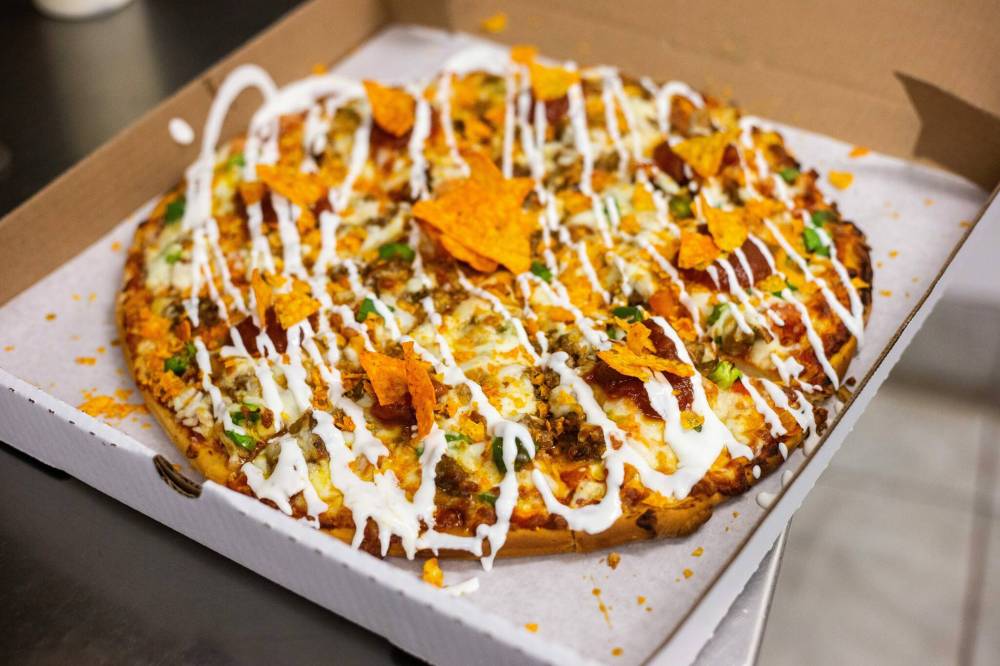Pizza ingredient origins a global gift
Advertisement
Read this article for free:
or
Already have an account? Log in here »
We need your support!
Local journalism needs your support!
As we navigate through unprecedented times, our journalists are working harder than ever to bring you the latest local updates to keep you safe and informed.
Now, more than ever, we need your support.
Starting at $15.99 plus taxes every four weeks you can access your Brandon Sun online and full access to all content as it appears on our website.
Subscribe Nowor call circulation directly at (204) 727-0527.
Your pledge helps to ensure we provide the news that matters most to your community!
To continue reading, please subscribe:
Add Brandon Sun access to your Free Press subscription for only an additional
$1 for the first 4 weeks*
*Your next subscription payment will increase by $1.00 and you will be charged $20.00 plus GST for four weeks. After four weeks, your payment will increase to $24.00 plus GST every four weeks.
Read unlimited articles for free today:
or
Already have an account? Log in here »
Hey there, time traveller!
This article was published 17/10/2023 (870 days ago), so information in it may no longer be current.
Our world is not showing off its best aspects at the current time. Massive violence against innocent people, whether in Eastern Europe or the Middle East or elsewhere compete with climate crisis disasters of storms, floods and fires around the world.
Politics are moving toward authoritarianism and intolerance of minorities is growing. Our pandemic seems to be on the back burner, but cases are actually rising.
While my column normally deals with these issues, maybe it’s a good time to look at something a little less depressing. In my work educating people about global issues and asking everyone to “think globally and act locally,” something that intrigues folks is that most things we eat, wear or use actually have their origins in some other part of the world. Thus, can we see our planet as home to everyone, where all deserve a chance for security, rights and a degree of prosperity?

No dish is more global or more fun than pizza. While you are catching up on the latest news, or reading a good book on one of the crises currently affecting our planet, enjoy your favourite toppings along with a cool beverage.
On a recent visit with my two-year-old granddaughter, I realized that when she was about to have a meltdown I only needed to grab some homemade pizza for her out of the fridge and peace and calm reigned supreme.
The crust for a pizza is usually made of wheat flour. Yes, there is lots of wheat grown on our Prairies, but the first wheat was cultivated by our ancestors in the Fertile Crescent of Mesopotamia some 10,000 years ago. Evidence has been found of Egyptians winnowing wheat by hand about 1000 BCE and the Romans actually introduced the first mill to grind wheat into flour during their empire. Brandon-Westman’s Marquis Project was named after Marquis wheat (a mixture of European, African and Canadian biological strains) which was popular in the last century and yielded a large surplus that allowed us to export wheat overseas.
Many of the vegetables that we put on pizza have their origins in Central and South America. Peppers, tomatoes and pineapples for instance, were “discovered” by the Conquistadors who invaded the Americas in the late 15th Century, and ultimately were taken back to Europe and cultivated there. The tomato is a fruit, a berry actually, and one of the most popular foods on Earth. Hernan Cortez took seed back to Spain and grew tomatoes there, and its popularity gradually spread.
Peppers were first found in Mexico by Europeans. Their previous experience with “pepper” was the white and black variety that is spicy hot and that we sprinkle on our foods for taste. That pepper comes from Asia and Marco Polo brought it back first to Europe. Pineapple, of course, is a controversial topic — is it “right” to put pineapple on pizza? It originally comes from South America and also found its way to Europe via colonization.
Not everyone likes mushrooms and olives. Edible fungus (mushrooms) have been found historically in China and Japan, Europe and around the Mediterranean and here in North America. The trick is to find the safe ones, so cultivation of safe ones became quite an industry. Back in Greek and Roman times, scientists were documenting the various varieties of mushrooms.
Olives originally come from Asia Minor and around the Mediterranean but other warm climates now grow them, such as California. They were a source of food, oil for religious purposes, and wealth for people as far back as 4000 BC, and the trees on the Mount of Olives in Jerusalem are thought to be 2000 years old.
The most popular topping for pizza is pepperoni, which was created by Italian butchers in New York around 1920 and became popular with the rise of pizza in the 1950s. This spicy sausage captures many taste buds with its hot and smoky flavour. Pizza restaurants, with pepperoni as their most attractive topping option took Manitoba by storm back in the ‘60s when I was a teenager, and I remember my first forays into the Pizza Place in downtown Winnipeg, taken there by an older cousin and introduced at that time to coffee as well! I’ve never looked back!
The moral of this story is that we live in a global society where we enjoy a grand lifestyle bestowed upon us by people over the centuries from every part of the world — the Middle East, Asia, the Americas and Europe. The pizza is just an illustration. The challenge is how to see ourselves as one planet, instead of contending forces prepared to kill to get our way.
» Zack Gross is Board Chair of the Marquis Project, a Brandon-Westman based international development organization.
